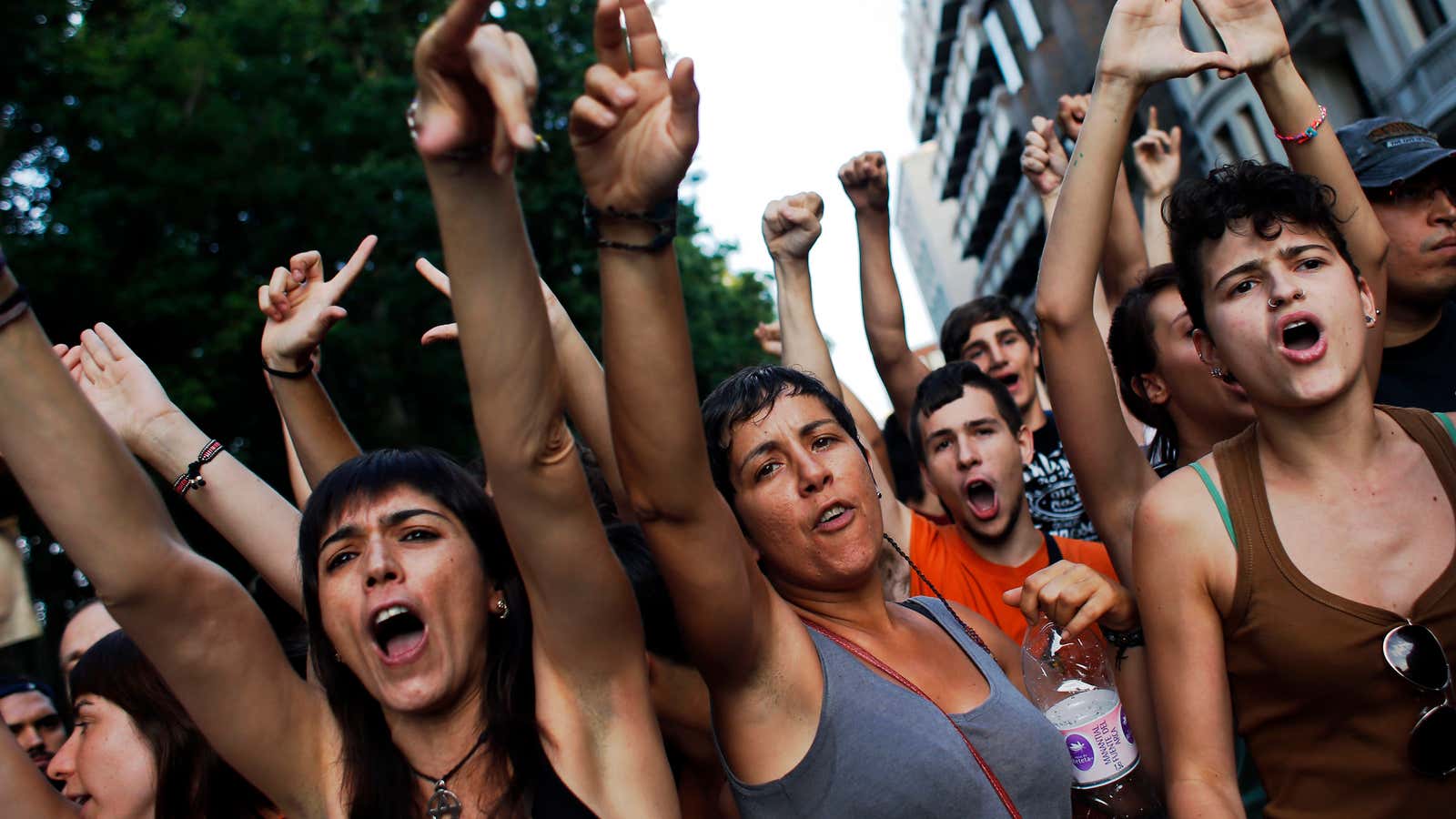Powerful narratives have grown up in the debate around egg-freezing, the still fairly new technology that allows women to preserve their eggs for possible use in later life. We talk about how today’s women can “have it all,” staying focused on careers and education, and putting off having kids until a more convenient time. In the anti-egg-freezing camp, there’s a feeling that these women trying to “have it all” are selfishly pushing the limits of biology for their own gain.
But both of these “having it all” narratives are, for most women, utter fiction.
The overwhelming data point to a different reason that women freeze their eggs: They don’t have a partner. New evidence comes from two studies lead-authored by a Yale academic and published in July and August 2018. These are the biggest interview-based studies on women who freeze their eggs to date, and the only ones to compare more than one country. Anthropologists in the US and Israel interviewed a total of 150 women from the two countries who had been through at least one egg-freezing cycle. All the women were educated professionals, mostly in their mid- to late-30s, and 85% said that the reason they had decided to freeze their eggs was that they did not have a person with whom to raise a family. Of the remaining 15%, some were married, getting divorced, or with a person who already had children or didn’t want children. Only one—one!—of the respondents said she was delaying family for career reasons.
“There’s a sort of assumption that women are primarily motivated to use this technology for career planning and education,” said Marcia Inhorn, professor of anthropology and international affairs at Yale University, who led the research. Among the vast majority of the women interviewed in the study, “it really, really, really wasn’t about career planning,” Inhorn said. “It was about a lack of a suitable partner.”
Not having a partner but still hoping to have children in the future is a pretty logical reason for trying to preserve one’s fertility. And yet it’s rarely discussed. Instead, we criticize companies that help women employees freeze eggs, as if this is an insidious invasion of their privacy, or a command to put work before family, rather than a recognition of possible need. We say that women have been “conned” into paying for cryopreservation, implying they don’t do their own research, or make choices for good reasons.
🎧 For more intel on IVF technologies, listen to the Quartz Obsession podcast episode on egg freezing. Or subscribe via: Apple Podcasts | Spotify | Google | Stitcher.
Egg-freezing for so-called “social” (as opposed to medical) reasons is relatively new: The “experimental” tag was only lifted from the technology in the US in October 2012. In 2015, only about 6,200 women froze eggs in the US. In the UK in 2016, about 1,000 women froze their eggs.
The conclusions echo smaller studies that had similar findings. Nevertheless, Inhorn said, there’s a perception that women have other motivations for both their deferred parenthood and their solo status, a skew in public discourse which began to be documented by academics in 2013.
Why do so many women find themselves without a partner in their fertile years? It’s at least in part a matter of demographics.
Jon Birger, a journalist and co-author of the Yale paper, used US census data to show an imbalance in the number of college-educated women and similarly-educated men for his book Date-onomics. “Between the ages of 30 and 39—when women start freezing their eggs—there are 7.4 million university-educated American women for only 6 million university-educated American men,” the study notes. “This is a ratio of 5:4.”
And it’s not just a US problem. A similar deficit of educated men exists in at least 70 countries, according to World Bank data cited by the authors, which counted the ratio of women to men in higher education from 2012 to 2016:
This state of stasis, where a woman can’t get on with the next part of her life because of the lack of suitable partner, even has a name, coined by Diane Singerman, a professor at American University in Washington, DC: Waithood. It’s a predicament women don’t want, and they certainly don’t plan on it, said Inhorn.
Egg-freezing isn’t a perfect solution, but for a growing number of women, is one way to manage an imperfect situation.
